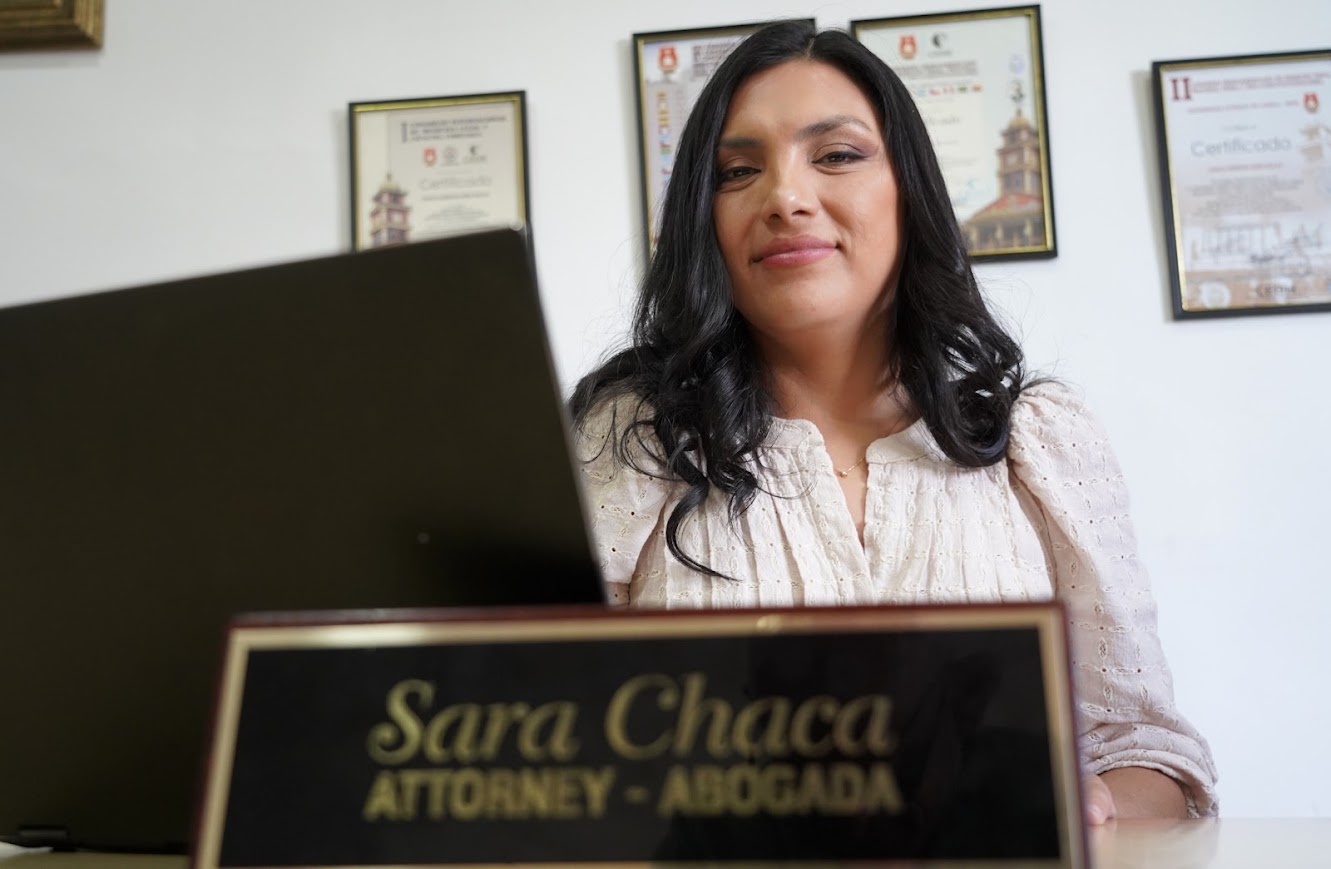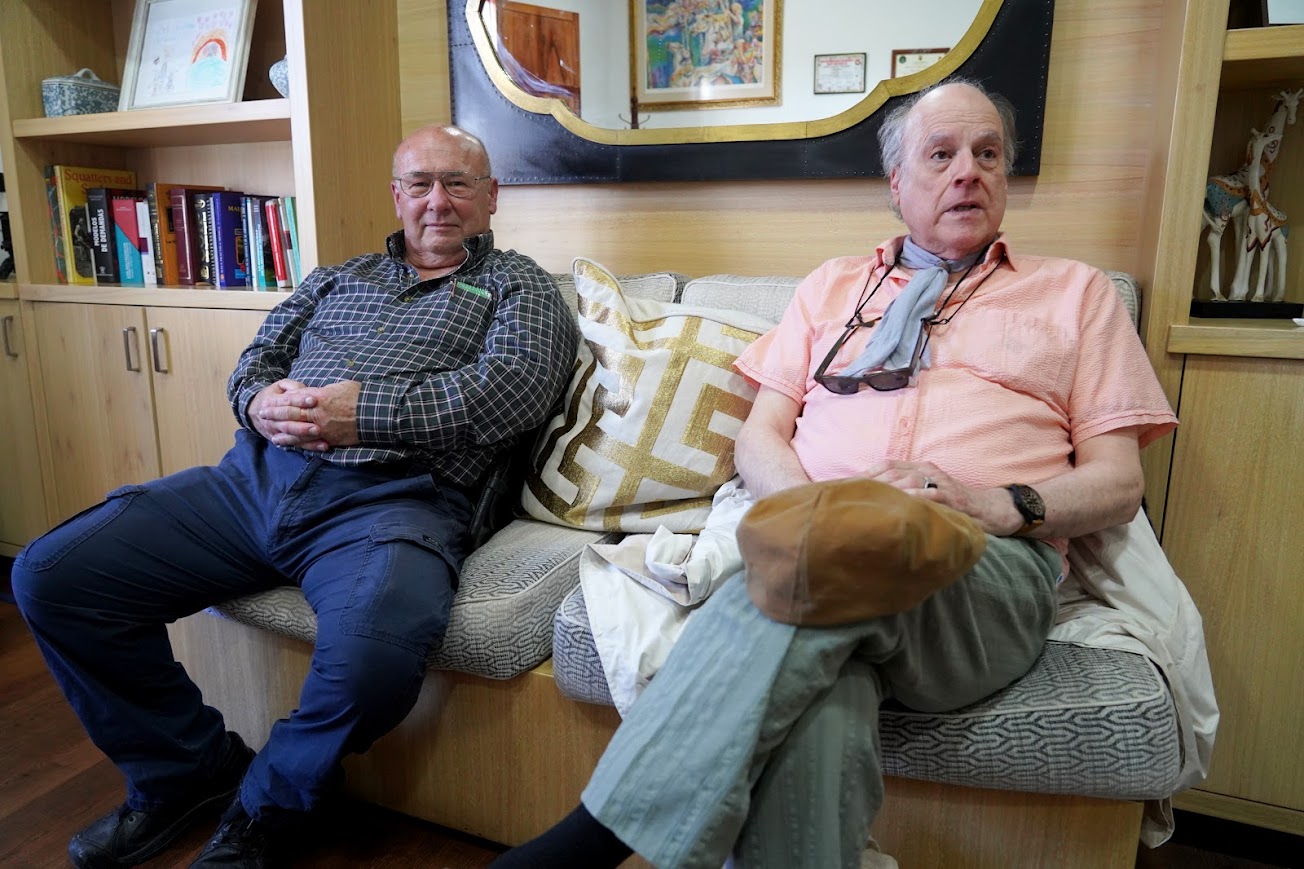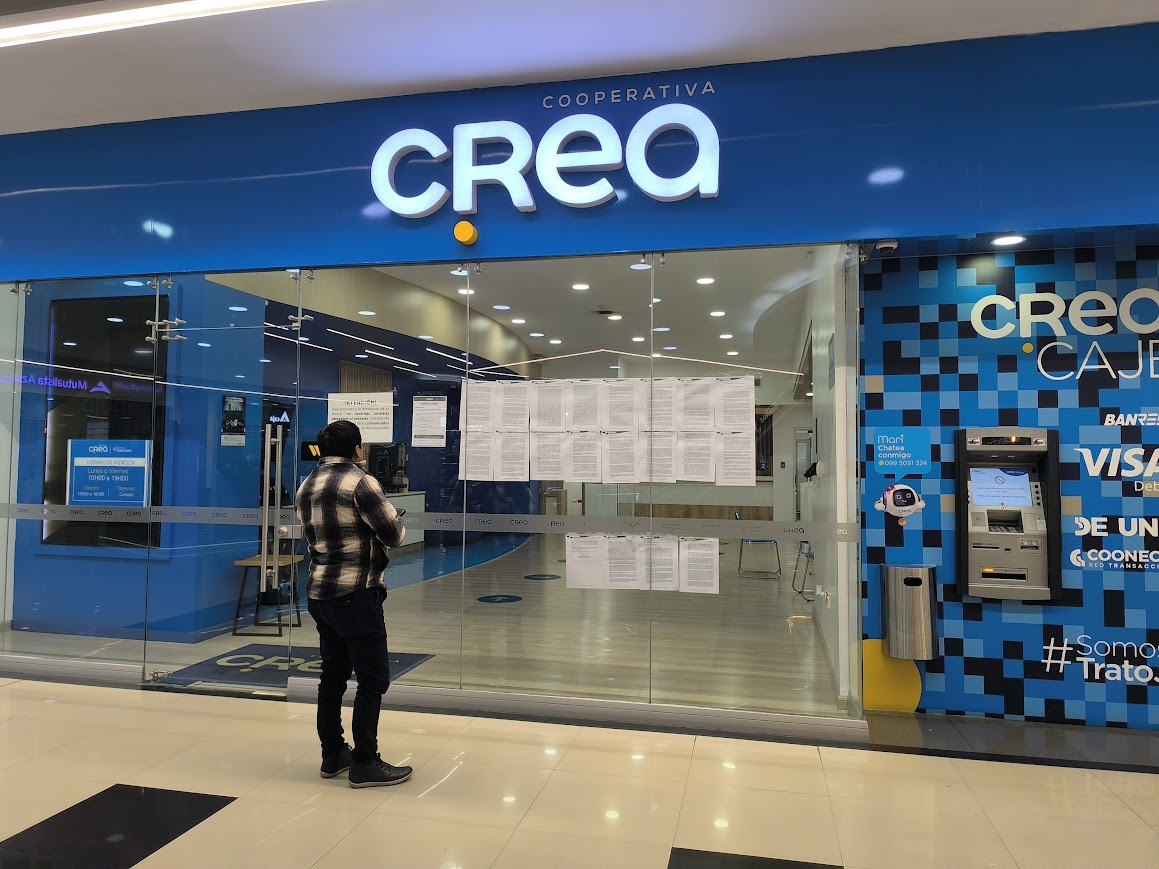
Sara Chaca, Moving to Ecuador, and Impacts of CREA failure
Written by Stephen Vargha, August 19, 2025
Most people do not know what they want to do for the rest of lives when they are 18 years old. And that includes picking a college major when one is fresh out of high school.
But Sara Chaca was different. After graduating from school in Chordeleg, she entered Universidad Católica de Cuenca knowing she wanted to practice law.

“My uncle was an attorney in Chordeleg,” said Chaca. “I am empathetic, so I like to help people as much as possible.”
She added that one has to like having contact with people.
“I started my own practice with my husband in 2013,” said Chaca. “My first office was at Edificio Acrópolis. It is where I met Paul Wilches.”
Paul Wilches is the founder and owner of Relocation Services of Ecuador, probably the oldest household goods moving service in Ecuador.
Being located in the same building for six years was the perfect match for their services as they worked together on helping people move to Cuenca and the rest of the country.
Chaca and her husband decided to place some ads for her practice in GringoTree, which was an email alert service that announced services, businesses, and items for sale. GringoTree was used by expats in Cuenca as well as prospective residents of Cuenca in North America.
“People started to contact me,” said Chaca. “We started to become more popular.”
That popularity led to her business, Ecuador Visas. It is now one of the three biggest visa facilitators in Cuenca.
“I give my clients instructions on how to get things going,” said Chaca. “I have them scan their documents and email them to me to make sure they are correct for submission.”
Many of those documents needed have to be apostilled. It is a certificate that authenticates documents for international use. An apostille document is more than one that is certified as it verifies the authenticity of a document's signature, seal, and position of the official who issued or certified it. And it is accepted by most countries in the world.
But getting apostille documents from federal agencies in the United States can be frustratingly slow.
“After the COVID pandemic, getting apostille documents slowed down,” said Chaca. “Now with Trump’s firings, federal documents are taking even longer.”
All of those documents can be sent to her former mother-in-law’s home in the Tampa-St. Petersburg area.
“She is retired and helps us with the U.S. documents,” said Chaca. “It helps my client to save money with shipping costs. And they can use their American credit cards there.”
People wanting to live in Cuenca need to know when they will move as apostille documents are only valid for 180 days. Getting all of the necessary documents in order can take two months.
Once the Ecuadorian government has them, it is three to four weeks to get approval. All of this is done at the Ministry of Foreign Affairs and Human Mobility in Azogues (Cañar province).
“I’d say Azogues is the best ministry in Ecuador,” said Chaca. “I don’t have any issues with them as they know what they are doing.”
Fingerprints play a crucial role in criminal background checks for visa applications. While many have them done in their home country, others have Chaca to help them with it.
“I used to take them to the police station at Avenue España,” said Chaca. “But due to the volume of my clients, the police come to my office to get the fingerprints.”
Many expats are thrilled with Chaca and her staff. Including Chaca, Ecuador Visas has three attorneys and four staff members. Many of them speak English.
“I was on tour of Ecuador and Sara talked to the group. She appeared to be legitimate, so I hired her,” said Ronny Johnson. “I didn’t interview anyone else.”
Johnson moved from eastern Oregon 18 months ago. He and two other expats sat down to explain why they chose Chaca and why they are happy with her visa and legal services.
“I looked online, and Sara’s name kept popping up. I responded to her ad that promised a prompt response,” said Michael Corapi. “Sure enough, I received an immediate response. I saw her in person, and she helped me ease into Cuenca.”

Corapi moved from Staten Island, New York three years ago. He feels that Chaca was the right person for what he needed.
“She did everything for me. They escorted me everywhere and got it all done,” said Corapi. “And we’ve been in touch ever since.”
The vast majority of Chaca’s clients are from the United States. About 70 percent are from the U.S., 20 percent from Canada, and the remaining 10 percent are from other countries. Most of them are young Chinese.
“The Chinese want to find another opportunity in life,” said Chaca. “They want more freedom, especially after the pandemic.”
As for U.S. citizens moving to Cuenca, Chaca sees two main reasons.
“They want to change their lives. They want to get away from the political situation in the United States,” said Chaca. “Secondly, it got too expensive for them.”
According to the Budget Lab at Yale, people in the U.S. are likely to face a 37 percent rise in the cost of clothing costs. Food prices, meanwhile, could rise more than the current three percent. And cars, which rely on components from several countries, could get 12 percent more expensive.
“In the last few months, families with little kids, are moving here,” said Chaca. “Most of these people are 30 to 50 years old and are working remotely from Cuenca.”
Chaca covers all aspects of the law. One of the things that has her attention was the sudden foreclosure in July by the government of CREA, which had $6.5 million cash-on-hand against outstanding loans and other liabilities of $196 million.

“I have lost ALL my money and no longer have the Investment Visa funds available, which is VERY scary,” said Karen Boehler. “I am scared to death because it’s almost ALL the money I have. I’m (transferring the) little bit of what I have left in my U.S. account to another bank so I can pay my rent.”
Boehler, who moved from Roswell, New Mexico eight months ago, is talking about CREA. For her it involves the Ecuadorian Investor Visa, also known as "Inversionista."
“I deposited $50,000 in CREA. So that missing (money) plus interest is really bad,” said Boehler.
The Superintendency of the Popular and Solidarity Economy (SEPS) reassured members they will be able to recover their deposits up to $32,000, due to the Deposit Insurance Corporation.
Currently, Chaca is providing information and assistance to CREA customers in the U.S., Canada, China, and Japan.
“People should be very careful of very high interest rates,” said Chaca. “I always recommend to my clients to check out the rankings of the co-ops.”
Unfortunately for people opting for the Investor Visa with a CD at an Ecuadorian financial institution, the $47,000 (for 2025) has to be all at one place. It cannot be split up to protect the entire amount by SEPS.
There was a total of 53 cooperative banks in Ecuador as of May 05, 2025. Finding their ranking can be done on the SEPS website.
On March 31, CREA had a rating of a B- / B-. Meanwhile, JEP (Cooperativa de Ahorro y Crédito Juventud Ecuatoriana Progresista Ltda.) had an AA / AA-.
Expats have used Chaca for the usual legal reasons, but one expat needed her help for something out of the ordinary.
“Sara created a sworn declaration over a weekend to get my Moroccan carpets that were about to be going into abandonment at customs,” said Jennifer Hunter.
Hunter moved to Cuenca from Los Angeles five years ago and has used Chaca’s services several times.
“We are used to U.S. customer service,” said Hunter. “Sara went beyond what a U.S. attorney would have done.”
Sometimes, it is the little and extra things that make Chaca stand out.
“On my recent birthday I was surprised and glad to receive a happy birthday email from Sara’s office sent by her assistant Santiago. It was signed ‘Santiago’ and “EV Team,” said Corapi. “Another time I needed a notarized statement to Santander Bank in the U.S. With Sara’s approval, Santiago typed out a statement and accompanied me to the notary where it was taken care of. Sara’s office has always been helpful!”
“Every single thing Sara has told me has been spot on. I love her staff; it’s a winning combination,” added Hunter.
This Article shared with permission from the Author.
Photos by Stephen Vargha
Stephen Vargha’s second edition of his book about Cuenca, “Una Nueva Vida – A New Life” is available at Amazon in digital and hardback formats. His award-winning blog, "Becoming Cuenca,” supplements his book with the latest information and hundreds of professional photos by him.
For assistance contact Sara Chaca, an English speaking Ecuadorian Attorney (principal office is
located in Cuenca but services all of Ecuador). For every Expat, Sara provides a complimentary consultation regarding immigration to Ecuador—specific to your circumstances.